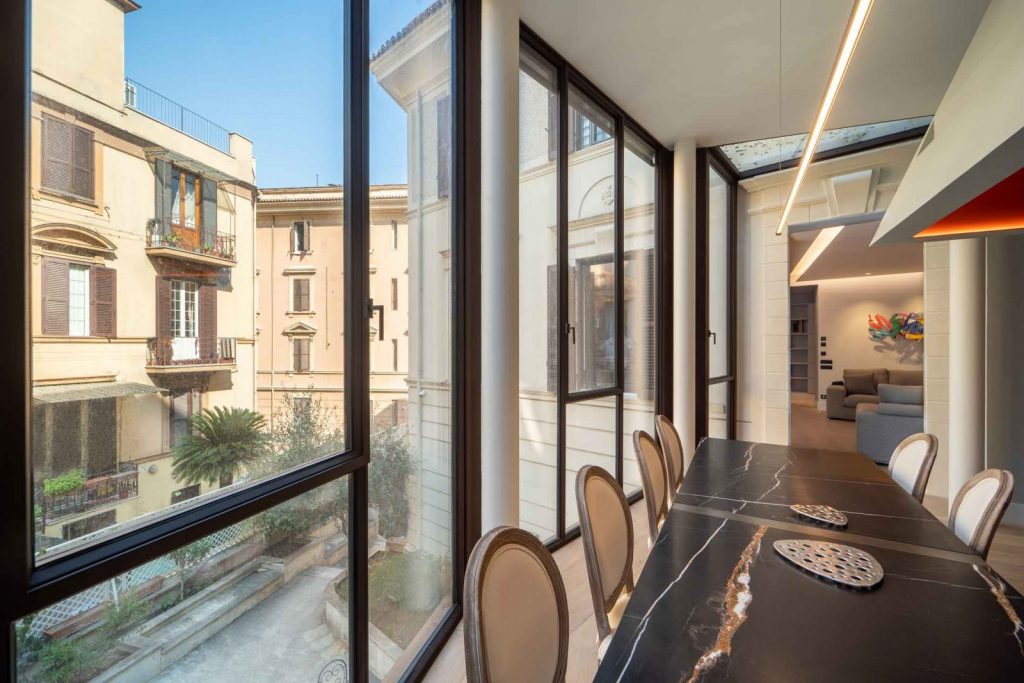
With winter just around the corner, many of us are starting to think less about our air conditioning units, and more about our heating systems. However, when taken together, heating and cooling homes makes up roughly 45% of a homeowner’s annual energy bills. This is why one of the most important things to find out and consider when choosing windows, doors, or skylights, is how energy efficient they are. No matter the season, you need windows which are efficient and perform well. But, how do we know which factors make energy efficient windows? Who decides? And, most importantly, does energy efficiency necessarily correlate with maximum comfort?
Thankfully, there is a straightforward framework for architects and homeowners who wish to make informed decisions about windows and doors. The National Fenestration Rating Council provides four key metrics, known as the NFRC rating, which provides context for prospective buyers. What makes the NFRC rating so useful to homeowners is the fact that the ratings are completely independent of the manufacturer or seller. In short, the NFRC ratings provide an objective score of the window or door’s efficiency. To make it easier to understand the numbers, we recommend this very simple tip: in general, the lower the number, the more efficient the window. More efficiency means more comfort and consistency.
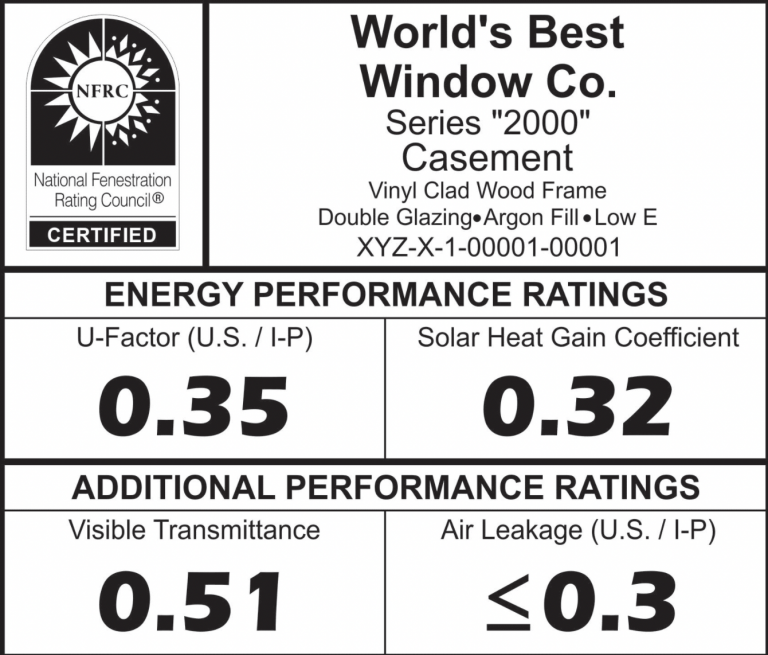
As mentioned above, there are four key metrics which measure the efficiency of windows. These are: Air Leakage, U-Factor, Solar Heat Gain Coefficient, and Visible Transmittance. According to the NFRC, high performing fenestration products should:
• Provide comfortable levels of heat and light.
• Maintain a consistent temperature.
• Protect against UV radiation.
Also, if not installed correctly, the IGU can cause further air leakage from the window unit. Furthermore, it can lead to water leakages. This can lead to even bigger problems such as damp, rot, and, occasionally, structural damage within the home. It is very important that a licensed and certified installer team install all of your windows and doors. Here at Open AWD, we use an external licensed and certified team for our projects. Remember: a low air leakage rating also means lower energy bills.
Here at Open Architectural Windows and Doors, all of our products undergo rigorous testing. This is not only during the manufacturing process, but also carried out onsite by a licensed and certified team. This will ensure the ratings hold up within their environment.
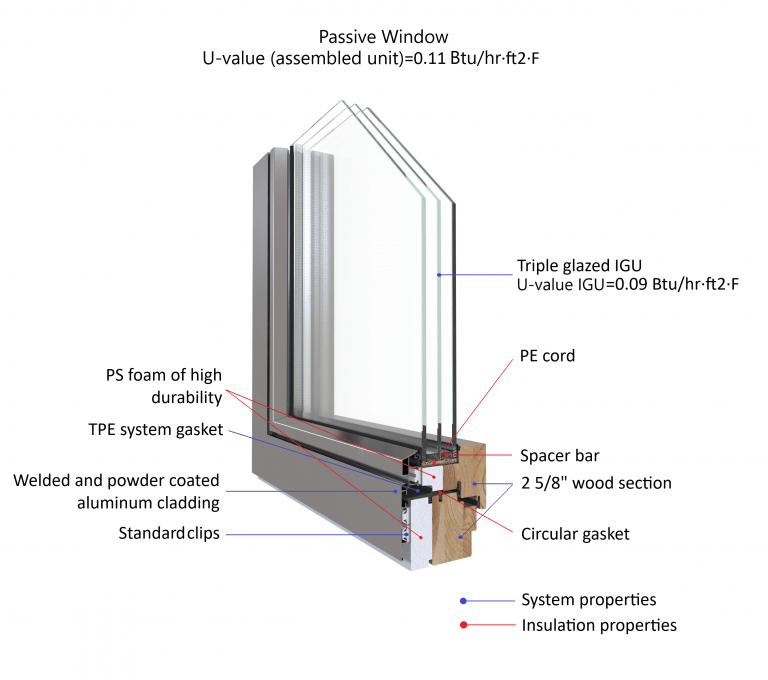
U-Factor (also known as U-Value) is another important aspect when it comes to choosing energy efficient windows and doors. To put it very simply, it measures how effectively a window can retain heat inside a home and reduce heat loss. The glass, frame, dividers, and spacers all play a part in unwanted heat loss. To put this in context, older, single-pane windows had a very high U-Factor, usually of about 1. Again, the lower the number, the more heat it retains. So, for example, a window with a U-Factor of 0.15 will retain heat better than one with a value of 0.4. A low U-Factor is essential for people living in colder climates, or in locations with harsh winters.
Many of today’s window manufacturers will strive to achieve a Passive House standard with their windows. Passive House is a building standard that promotes thermally and energy efficient homes. Created in Germany at the end of the twentieth century, the Passive House concept has since become the global standard in sustainable design and energy efficiency. Through a combination of extensive insulation, thermally broken, airtight windows and doors, and an energy recovery ventilation (ERV) system, your home’s heating and cooling needs can be reduced by up to 90%. The result produces a home which is extremely cost effective and whose temperature is highly regulated. Here at Open Architectural Windows and Doors, all of our windows are Passive House standard. You can learn more about it here.
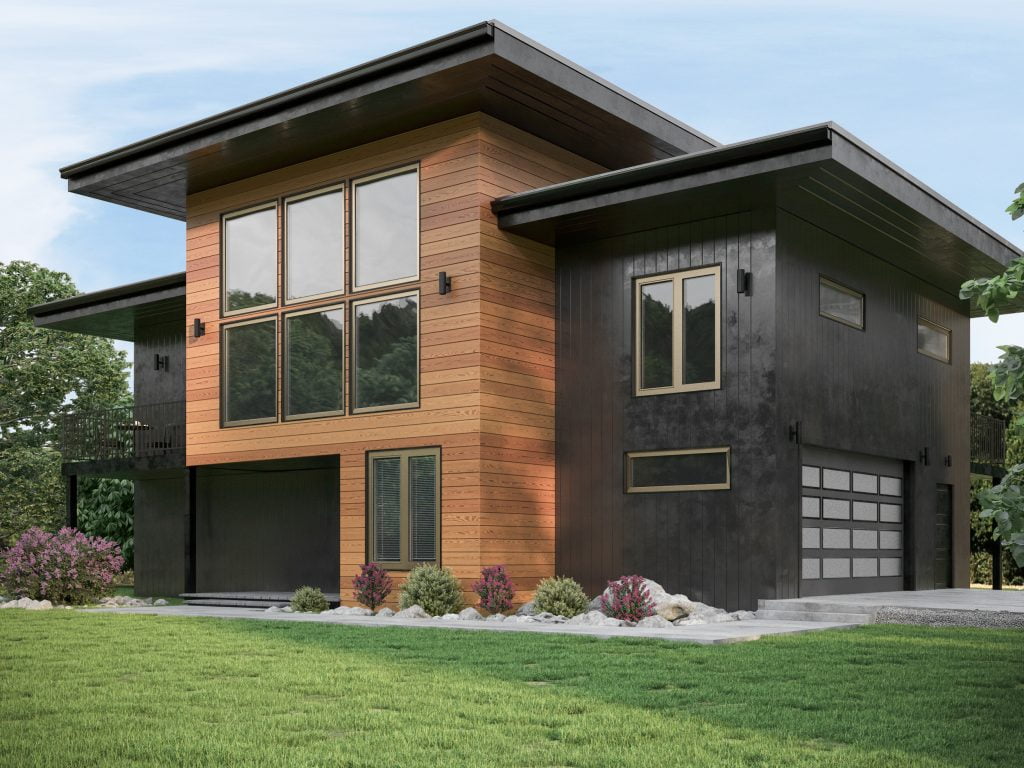
Solar Heat Gain Coefficient (SHGC) is solar radiation which enters a home via its windows, doors, or its skylights. This is either transmitted directly and/or absorbed, before being released as heat inside a home. Much more so than Air Leakage or U-Factor, with Solar Heat Gain Coefficient (SHGC), a low or high number rating will really depend on the regional climate as well as the orientation of the property. The lower the number, the less heat it lets in. Conversely, windows with a high SHGC level will allow more heat into the home.
Commercial buildings with a lot of large windows, or curtain walls systems, will often seek to minimize unwanted solar heat gain. Standard homes, however, may want to harness some of the solar heat. South-facing windows will be a great addition to a property in the winter months, but may introduce too much unwanted heat gain in the summer months. To avoid this, we would recommend installing overhangs or exterior shading systems. This will minimize glare and unwanted heat gain. We would recommend a low SHGC for east-west facing properties.
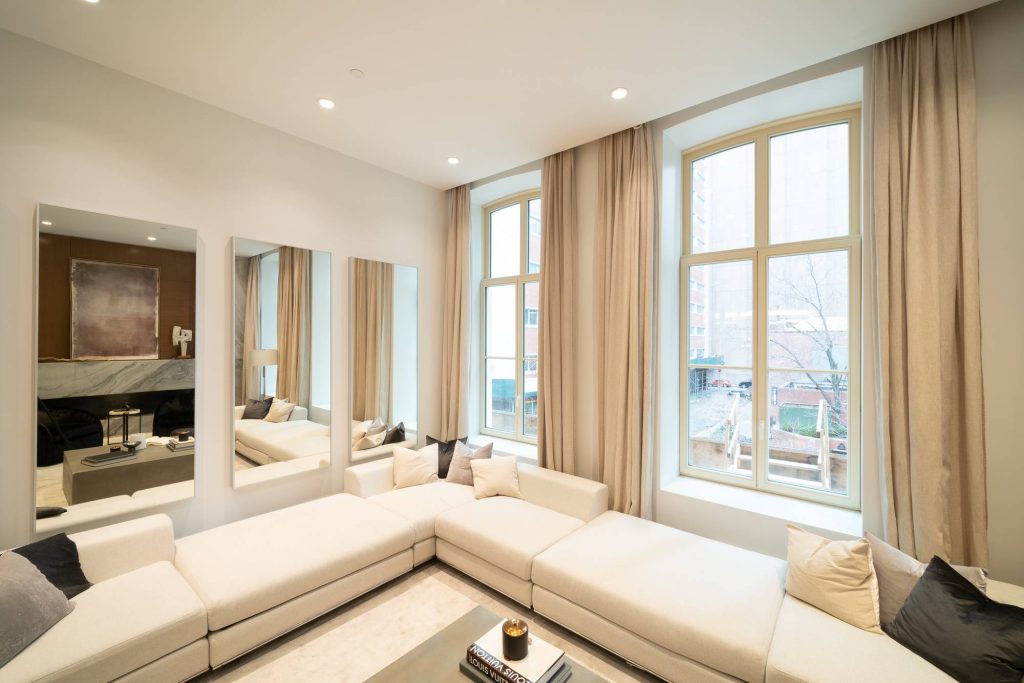
Visibility Transmittance is the one factor in which lower does not mean not better. We use a scale to measure this and it helps determine how clear the glass is. The scale runs from 0 to 1. Standard double and triple-glazed windows will rank between 0.3 and 0.85. You want a higher number with this, because higher the number, the greater the visibility.
This factor is very important because it–along with the size of the window–will determine the amount of natural light that can enter a room. As a result, it will also have an impact on the amount or artificial light needed–another factor which influences energy efficiency.
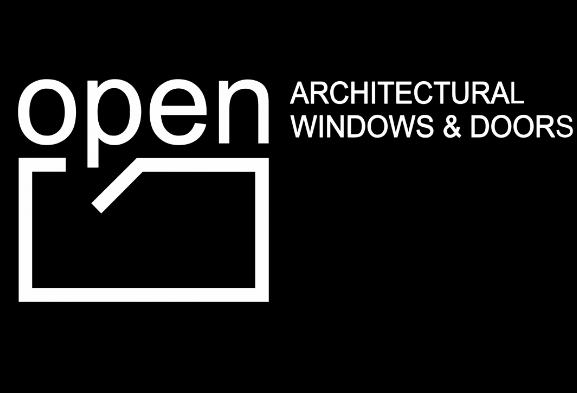
As you can see, purchasing windows is an important and often time-consuming decision. So, it makes sense to spend some time researching the ideal windows for your home in order to best serve you over the following decades. Although the window you need will be mostly determined by your climate, you will need to pay close attention to the variables we discussed here so that you get the most comfortable and consistent windows for your home. If you have a project in mind and want to learn more about what may be the best type of energy efficient windows for your home, contact us today for a free consultation. Call us at 718-403-0300, or email us at info@openawd.com and someone from our team would be happy to discuss this with you.